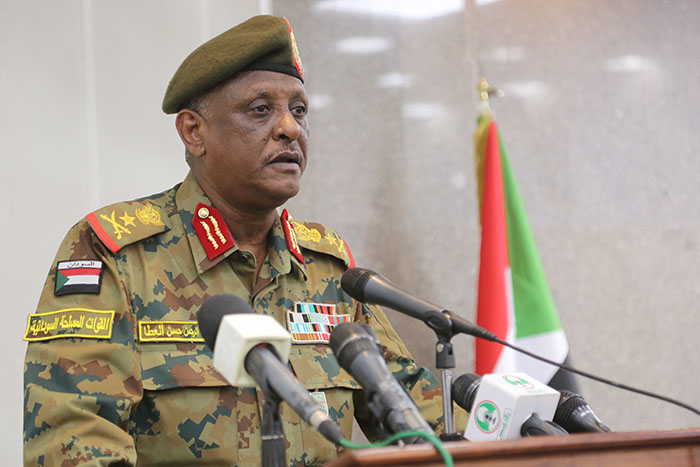Sudanese Sovereign Council member and Army Assistant Commander-in-Chief Yasir Al-Atta announced on Sunday that the government would file a complaint with regional organizations and escalate it to the UN Security Council against the UAE for its involvement in exacerbating the armed conflict in Sudan.
A recent report by a UN team of experts detailed the UAE’s military supplies to the Rapid Support Forces (RSF) through Chad and Libya since last summer. The report also confirmed the participation of foreign fighters. This support bolstered the military capabilities of the paramilitary forces and enabled them to seize control over most of Darfur’s states.
Addressing a crowd chanting anti-UAE slogans during a tour in Omdurman on Sunday, Atta said, “We will begin by filing a complaint with regional organizations until we reach the UN Security Council. I add my voice to the citizens and demand that the Commander-in-Chief file an official complaint against the Emirates.”
He asserted that the report by the UN expert team, which was widely distributed through social media, corroborated their claims about the UAE’s involvement in supporting the rebellion and providing it with international cover.
Atta was the first Sudanese official to denounce the UAE’s involvement in the Sudanese conflict publicly. His statements triggered a diplomatic crisis between the UAE, Chad, and Sudan in November 2023.
The Sudanese senior official also mentioned the participation of foreign fighters in the conflict and underscored the fuel imported from South Sudan for the RSF vehicles.
“Unfortunately, the report confirmed the involvement of South Sudan in supporting the rebellion by opening the supply of fuel and food to the rebellion, as well as the participation of large groups of mercenaries from Chad, Ethiopia, Syria, Libya’s Haftar, Central African Republic, Niger, Mali, and Burkina Faso,” he said according to a press statement released by the media service of Khartoum State.
According to Al-Atta, the rebellion began the war with 120,000 fighters. Over time, they recruited an additional 49,000 fighters, and 7,000 fighters were mobilized from these countries every week.
“Despite this overwhelming force, we will prevail. We will organize the resistance and support it with experienced fighters to safeguard the lives and property of our citizens,” he stressed.
Speaking about the militia forces fighting alongside the army, the Army Assistant Commander-in-Chief stated that various groups are fighting with the army without regard to their political affiliations. He mentioned the neighbourhood Resistance Committees, the Kings of Clash (a group of anti-military coup protesters), the Islamic Movement, the Ansar Youth led by Abdel Rahman al-Sadiq Al-Mahdi, the Social Justice and Development Alliance led by Ali Askuri and Mubarak Ardol, (Darfur) armed movements, and the SPLM-N led by Abdel Aziz al-Hilu, as he said.
Al-Atta addressed the military operations undertaken by the army in Omdurman and explained that the deployment of RSF snipers in civilian homes had delayed the armed forces’ victory and the liberation of this part of the capital.
For weeks, the army has been conducting a large-scale ground operation targeting several Omdurman neighbourhoods before retaking several areas previously controlled by the RSF, except the area around the national radio and television premises and two adjacent neighbourhoods.

